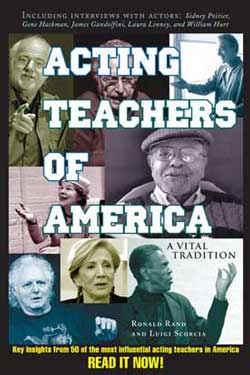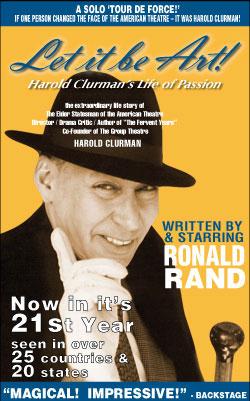Jim Seales
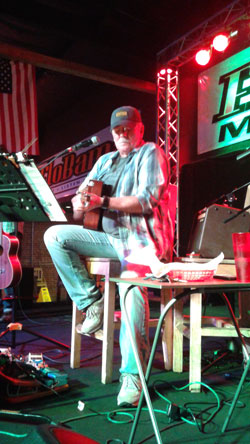 Is a member of the country music band, “Three Wheel Drive” with the renowned violin player, fiddler, vocalist Donny Carpenter, and vocalist, string instrumentalist Mitchell Curtis, performing regularly at FloBama in Florence, Alabama, across the state and throughout the United States. He was lead guitarist and vocalist of “Shenandoah,” an award-winning band founded in Muscle Shoals in 1984, with Marty Raybon, Ralph Ezell, Stan Thorn, Mike McGuire and Mr. Seales on lead guitar and back-up vocals. He retired from the band in 2014. “Shenandoah” released nine Studio albums, and was the most successful band to come out of the Muscle Shoals area, with two gold albums, twenty-six singles on Billboard’s Hot Country Songs chart, including nine albums: “Shenandoah,” “The Road Not Taken,” “Extra Mile,” “Long Time Comin’,” “Under the Kudzu,” “In the Vicinity of the Heart,” “Shenandoah Christmas,” “Shenandoah 2000,” and “Journeys.” Their number one hits included “The Church on Cumberland Road,” “Sunday in the South,” “Two Dozen Roses,” “Next to You, Next to Me,” and “If Bubba Can Dance, I Can Too.” They toured across America and on several international tours. Shenandoah received County Music Association award nominations, and received the Vocal Group of the Year Award in 1991 and 1992 and the Grammy Award in 1992 for Best Country Collaboration with Vocals for “Somewhere in the Vicinity of the Heart” with Alison Krauss.
Is a member of the country music band, “Three Wheel Drive” with the renowned violin player, fiddler, vocalist Donny Carpenter, and vocalist, string instrumentalist Mitchell Curtis, performing regularly at FloBama in Florence, Alabama, across the state and throughout the United States. He was lead guitarist and vocalist of “Shenandoah,” an award-winning band founded in Muscle Shoals in 1984, with Marty Raybon, Ralph Ezell, Stan Thorn, Mike McGuire and Mr. Seales on lead guitar and back-up vocals. He retired from the band in 2014. “Shenandoah” released nine Studio albums, and was the most successful band to come out of the Muscle Shoals area, with two gold albums, twenty-six singles on Billboard’s Hot Country Songs chart, including nine albums: “Shenandoah,” “The Road Not Taken,” “Extra Mile,” “Long Time Comin’,” “Under the Kudzu,” “In the Vicinity of the Heart,” “Shenandoah Christmas,” “Shenandoah 2000,” and “Journeys.” Their number one hits included “The Church on Cumberland Road,” “Sunday in the South,” “Two Dozen Roses,” “Next to You, Next to Me,” and “If Bubba Can Dance, I Can Too.” They toured across America and on several international tours. Shenandoah received County Music Association award nominations, and received the Vocal Group of the Year Award in 1991 and 1992 and the Grammy Award in 1992 for Best Country Collaboration with Vocals for “Somewhere in the Vicinity of the Heart” with Alison Krauss.
What led you into music? How young were you and did your family play instruments and sing?
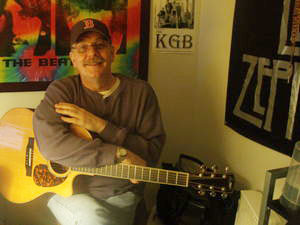 I stated when I was about ten years old. My father and others in my family played different instruments like the guitar and the bass; they played more of a country and folksy music. Being a musician is not part of my soul, like it is for some others but I love it.
I stated when I was about ten years old. My father and others in my family played different instruments like the guitar and the bass; they played more of a country and folksy music. Being a musician is not part of my soul, like it is for some others but I love it.
So I remember my father was playing music and the only way my brothers and I could get his attention was to ask him to show him what he was doing. So I asked him: “Can you show me how to play?” He showed me two chords to shut me up. (pointing towards a guitar hanging nearby) That’s the same guitar hanging there.” So he kept showing me and that’s how I learned how to play.
I actually was inspired by an English teacher and did very well in my studies. and was actually wanting to be a teacher. I was also good at athletics, and received academic awards, while at the same time I was playing and singing at dances. Well, when I graduated, I looked at what the starting pay was for an English teacher, it was $18,000 a year, and I was already making $25,000 a year playing so I said to myself: “I’ll give playing the guitar till I’m 30.”
Who were inspirations in music for you growing up?
Eric Clapton had a big impact. As a kid I remember I’d play The Beatles, The Monkees. I think it was in ’67 when I was thirteen (years old), and we’d been playing for school dances, and a “Cream” album came out – “Disraeli Gears.” It had a psychedelic cover in purple and pink. I put it on and played it and when I heard “Sunshine of Your Love…” I had no idea that that kind of music existed. I got my brother to listen to it. That’s when I discovered there’s more things you can do with your career; it was a wow! I thought to myself: “There’s some cool stuff you can do with music – you can express yourself.”
How would you describe the effect of music has had on your life?
I wasn’t the most pleasant fellow to be around early on. I was a martial arts instructor but then I had a transformation in my 20’s. I realized there were other people on the planet other than me. I think I had too much testosterone, and that made me make the music I did but to me, music was just a product. Until I realized the effect music could have, and to be careful with it.
When I came to Muscle Shoals in ’84, I was thirty. I had my first record deal at thirty-two, and always worked seventy-five to ninety hours a week. I knew it was a business, and once I got on the road it was always about money for me. I was the one on the road who did all the contracts, the payroll; that was my realm.
Until one performance on the road. One of the songs we sang, “Mama Knows,” mentioned a guy named Jimmy Crowders, and we had played the song in all our shows. Well, at the end of one of our shows, we meet a couple, and they say that their son had been killed, in an accident, and his name really was Jimmy Crowders, and the song meant everything to them. So I realized at that moment, that there were real feelings attached to these ‘products’ we were singing. That people coming to hear us were having a real emotional attachment to our ‘product,’ and that softened me.
What led to the founding of Shenandoah in 1984?
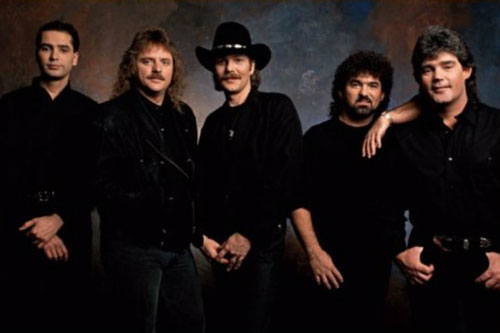
Shenandoah
I’ve built bands my whole life, moving one artist together with another one. Putting together this band in a little nightclub was really a way to have a little steady income in between doing recording sessions. I didn’t ever think of myself as an artist; I was just trying to write songs. Robert Burn, a gem of a guy, had a CBS record deal to find acts to produce. Well, one night he stopped in the club we were playing in, and heard us and wanted us to record an album. He told us ‘I know you’re all busy but…’ and he kept trying to get us to record. Finally, we decided to record, and thought we’d just make some session money from it. We all didn’t take it too seriously.
Well, CBS needed us to have a name as a group and we didn’t have one so we finally settled on Diamond Rio. But Rick Hall, who was producing the album with Robert Bryne, didn’t like it. He said: “Either call the band, Shenandoah or The Rangers.” Well, we didn’t like The Rangers so we picked Shenandoah. After we had gained a lot of success, and right after several hit records and the release of our third album “Extra Mile,” we found out Rick Hall didn’t have the trademark for the name, Shenandoah. In fact, there were other groups called Shenandoah, including the Arlo Guthrie band. When they all threatened to sue us, we finally had to settle, it must have cost over a million dollars. But that’s how it all happened. We got dragged and kicking into a record deal and we became the most successful act to come out of Muscle Shoals; it had to have been predestined. We traveled all over place, we were in Japan, South America.
How were some of your songs created?
Through the usual recording model, they were digitally produced. Back in the old days, writers would take their music to producers and most of the songs came from about two dozen local writers – some guys over in Nashville wrote them, in a lot of different ways. “The Church on Cumberland Road,” written by Bob DiPiero, John Scott Sherrill and Dennis Robbins happened when they were coming back from London, and they flew over the Cumberland River, looked down and began writing about what they saw.
How would you describe the art of collaboration that it takes to make a band happen?
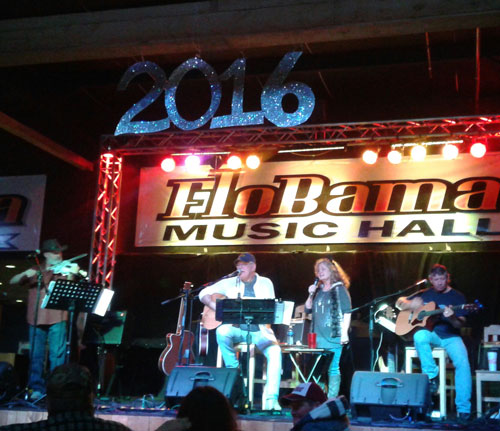
A fun night at Flobama with Three Wheel Drive
I call it the ‘foxhole mentality.’ You rely, in an improvised situation, on reading signals from the other players. You have to have some structure so that once you’re in a ‘foxhole,’ you know you can depend on the other person to cover you. We look at each other; there can be an exchange of a body posture. It’s really not emotionally acceptable to hook up with another man; men have a problem with that, but when you’re out there working day after day, you start to read body behavior, their looks, and you know what they’re going to play. It’s a very intimate situation in a way. Good musicians are good at that. You know you can’t let your wall down, it’s a sensitive situation, but we’re in this ‘foxhole’ together playing.
What was the reason you decided to ‘leave the road?’
I had a stroke about seven years ago; that really changed everything. Once I recovered I decided, and I was thankful I had recovered, that I could go ahead and hold a pic my life and play music, but I also wanted to teach. It made sense to me. But I also knew I couldn’t go back and finish school. So I taught the only thing I knew I could teach – I began to give guitar lessons. That changed my life.
I can’t begin to tell you how rewarding it is – and to see the ‘ha-ha’ moments from my students. I may be a magnet for the mentally-challenged young folks in the community, but when one of them is able to make a chord, that gives me more satisfaction than someone else who can play a song from start to finish.
You’ve been performing with Donny Carpenter and Mitchell Curtis in the band, Three Wheel Drive, at Flobama for a couple of years now. How was the band formed and what do you love about performing at Flobama?
“Three Wheel Drive” has been an experiment that’s changed my life. My dad was a lay preacher, but I had a .33 of ‘mustard-seed’ faith. I confess I’m still not religious, but I’ve become spiritual. I feel a great need to do something. I knew I had to retire from “Shenandoah” after doing it for so many years. I had put that band together and then we lost members, and I put it back together twice. But I came to the realization that it was time to slow it all down.
Now with “Three Wheel Drive” it’s different. I thought to myself that I could do this new band but not become attached to it. It’s just the three of us, it’s a very little band and really began as an experiment. I really didn’t think it would last this long. But a transformation happened.
When we play, we put out a small bucket to collect tips, and it’s somehow has turned out to change so many lives. I don’t exactly remember when it first happened but there was someone in need and we just agreed all our tips would go to help them and it was guided, I have to tell you by my wife, Donna Kay, and time and again, the tips have gone on to help folks with personal health problems, breast cancer, prostate cancer; it makes a small dent but it really has changed the way I relate to people too.
When we’re performing at FloBama, there really isn’t any script so we create it as we go along. It can be exhausting to keep it rolling along and be entertaining but I feel Donna Kay’s support and everyone who comes in and also comes and sings with us on stage. Sometimes I can get so tired but I know I’m supposed to be doing this, especially because we’re making people feel better and we’re able to add something to their lives.
Your very talented wife, Donna Kay also performs with you. What has it meant to you to have such a musical partner in your life?
I can’t even describe that. I waited a long time for her. We had both been in pretty loveless marriages. With my first marriage, because I was always on tour I was never home; I was never unfaithful but I just wasn’t there. We had a mutual parting of the ways.
When I met Donna Kay, I really didn’t care about anything. I wasn’t in a good place but when we met, we became friends, and we didn’t even realize that we had also fallen in love with one another. She would do the books here at Counts Records and I had my studio here, and she would let me out at the end of the day before she locked up. Well, one day, as I always said: “I’ll see you tomorrow.” But she said: “I won’t be here tomorrow, I’m quitting.” Well, I said: “You have to be. You’re the reason I come here.” After we said our goodbyes, as I walked away, I thought to myself “Why in the world did I say that?” And she told me later, she also felt the same way, and she didn’t end up leaving, and we went out for coffee and talked and we both agreed we were both lonely and that’s what started it.
You also spend a good deal of your playing helping others – why is it important to you?
I feel like I’m making up for lost time. Sometimes I’m in a daze; it has been a whirl. Donna Kay had an idea to fill the gap between us on stage and the audience at FloBama. It was her idea to move the tables up closer and leave some room for folks to dance. That started a “bridge” between us and the audience. I think we did it with Shenandoah. It was hard then for us to relate people but then I got to learn how fragile we all are. It was really a gradual thing.
We live in challenging times today. How would you say music and songs like the ones you created and sing help us?
If the spirit is in the river here, it’s everywhere. I see little bits of the music we play, how it can be transforming in ways I can’t even begin to describe. One young woman had really given up on life, she had lost a lot of weight – but she was brought to FloBama, and she kept coming, and after a while, something happened, she had new hope, we all could see it. People have gone through hell but somehow they come here, and all of a sudden, they’re laughing, acting healthy. Something happens. I think it’s always about a few people who care and reach out and when everyone does the same thing, miracles can happen.
























